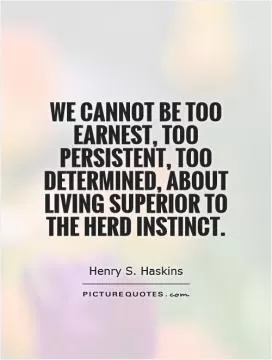With some whose nerves have a deep covering of fat, happiness is less of a problem that it is an accident of anatomy

With some whose nerves have a deep covering of fat, happiness is less of a problem that it is an accident of anatomy
Henry S. Haskins, a renowned American writer and philosopher, once said, “With some whose nerves have a deep covering of fat, happiness is less of a problem than it is an accident of anatomy.” This statement speaks to the idea that some individuals are naturally predisposed to experience happiness more easily due to their biological makeup.In the context of Haskins’ quote, it can be interpreted that individuals with a “deep covering of fat” around their nerves may have a greater capacity for resilience and emotional stability. This could be attributed to the protective barrier that the fat provides, shielding the nerves from external stressors and allowing for a more balanced emotional state. These individuals may be less prone to anxiety, depression, and other negative emotions, making it easier for them to experience happiness in their daily lives.
Furthermore, the idea that happiness is “an accident of anatomy” suggests that some people are simply born with a predisposition towards happiness. This could be due to genetic factors, brain chemistry, or other biological influences that make it easier for certain individuals to experience positive emotions. In this sense, happiness may not be solely dependent on external circumstances or personal choices, but rather a result of one’s inherent physiological makeup.
It is important to note that while some individuals may have a biological advantage when it comes to experiencing happiness, this does not mean that happiness is unattainable for those who do not possess this advantage. Happiness is a complex and multifaceted emotion that can be influenced by a variety of factors, including personal beliefs, values, relationships, and life experiences. While biology may play a role in shaping our emotional responses, it is ultimately up to each individual to cultivate their own sense of happiness and well-being.












 Friendship Quotes
Friendship Quotes Love Quotes
Love Quotes Life Quotes
Life Quotes Funny Quotes
Funny Quotes Motivational Quotes
Motivational Quotes Inspirational Quotes
Inspirational Quotes